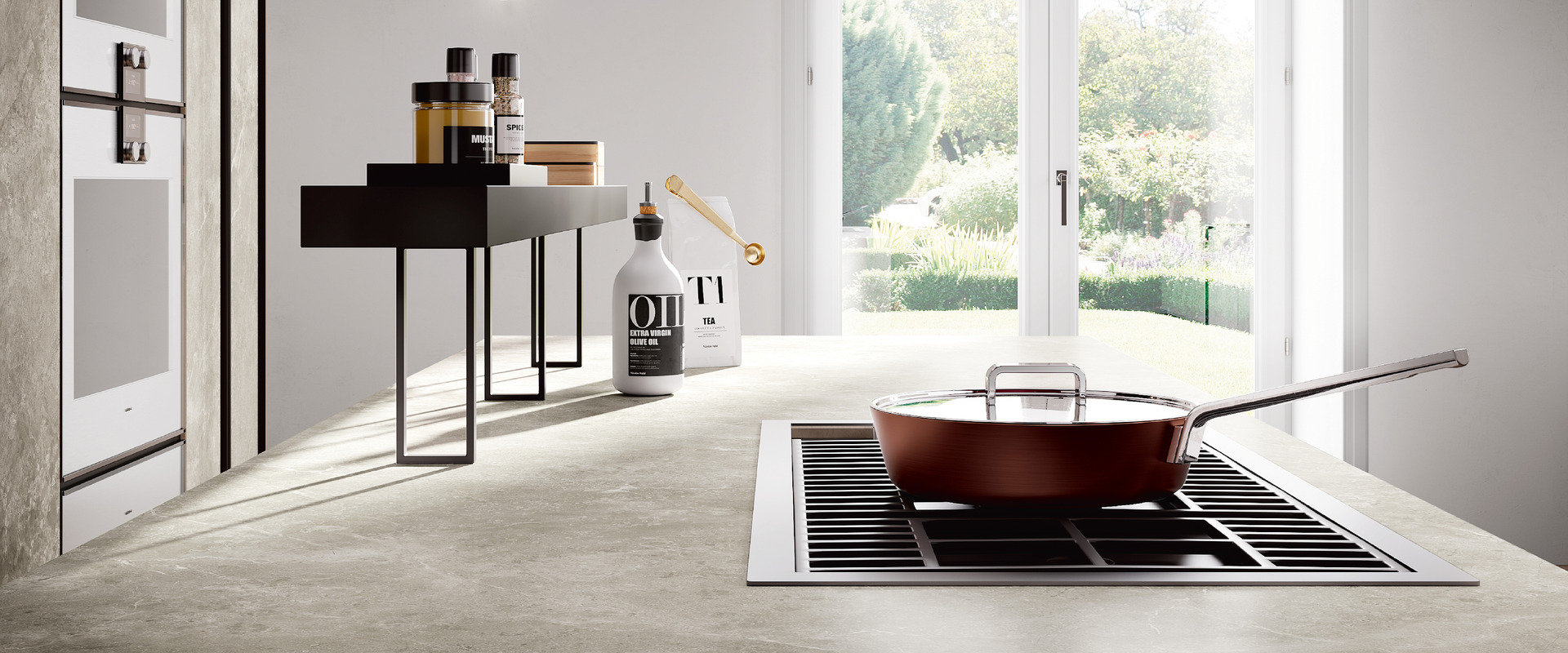
Quartz and porcelain are two of the most popular and trendiest kitchen countertop materials these days. Differing in features and composition, they represent very different alternatives for worktops for use in the home and the contract industry.
Which has the most benefits to offer in the kitchen?
Quartz and porcelain countertops both offer high performance in the kitchen.
A quartz kitchen countertop is never made of 100% mineral quartz.
All products of this type are made from a combination of materials, including not only quartz but polymers, pigments and resin.
There are pros and cons to the presence of resin: while it helps improve the material’s durability, it makes quartz countertops highly heat-sensitive, unsuitable for direct contact with high temperatures.
Porcelain countertops contain clays and feldspars, all worked, pressed and fired at ultra-high temperatures, ensuring that porcelain countertops are highly resistant to all chemical substances, in addition to heat, and ensuring that their appearance will remain unaltered over the years.
Quartz and porcelain kitchen countertops are both low-maintenance, highly practical and capable of tolerating the kind of stress to which a kitchen countertop is typically subject.
Their performance must therefore be compared with reference to other parameters, such as:
The range of available finishes of porcelain is definitely much greater than in the case of quartz.
Porcelain countertops are available in a great variety of designs inspired by different materials, such as stone, wood, marble and concrete, while the selection of possible finishes is more limited in the case of quartz.
Quartz agglomerates and porcelain are both made from raw materials of natural origin.
Both these surfaces are non-porous and will not absorb liquids, ensuring that they are easy to clean.
But porcelain countertops are much more advanced than quartz when it comes to their antibacterial and hygienic properties: entirely self-cleaning and self-sanitising porcelain countertops are now available, thanks to innovative technologies such as Active Surfaces offering:
As described in our guide, “Kitchen countertop materials: which to choose and why?”, the resistance of porcelain countertops to thermal shock, scratching and stain absorption is much greater than that of quartz countertops, which are easily scratched and offer no resistance to heat.
Porcelain countertops are robust, maintain their appearance unaltered over the years, and are also suitable for outdoor use because they are resistant to UV rays.
Come and find out more about SapienStone, the porcelain kitchen countertop offering unique resistance for home and professional use.
Talk to our experts about your ideal kitchen!